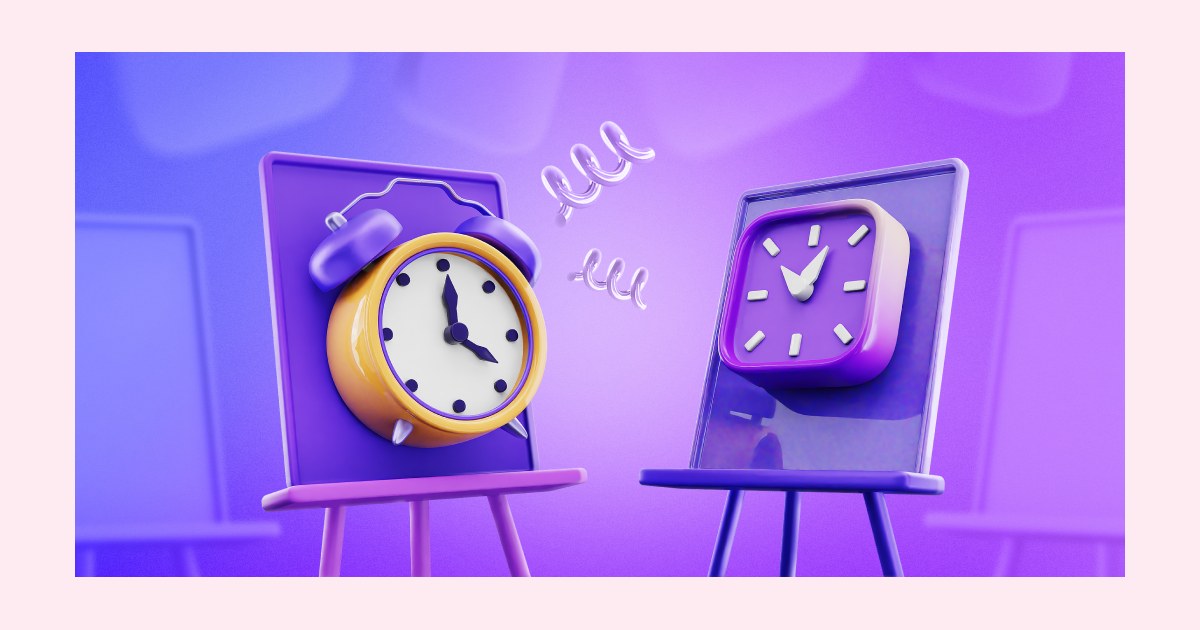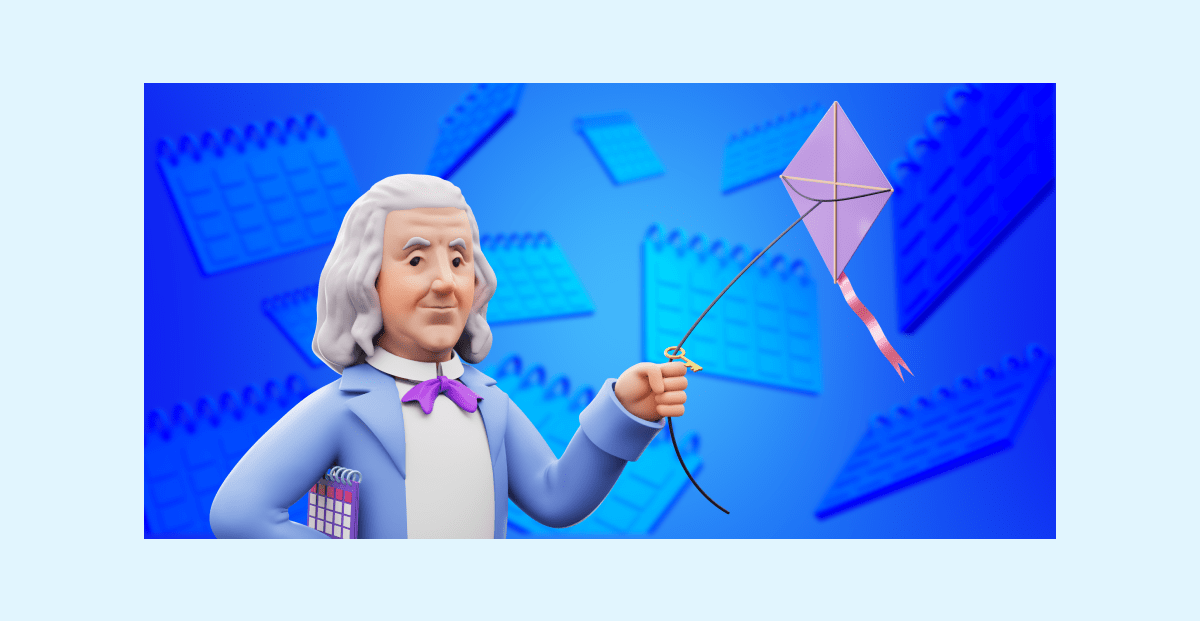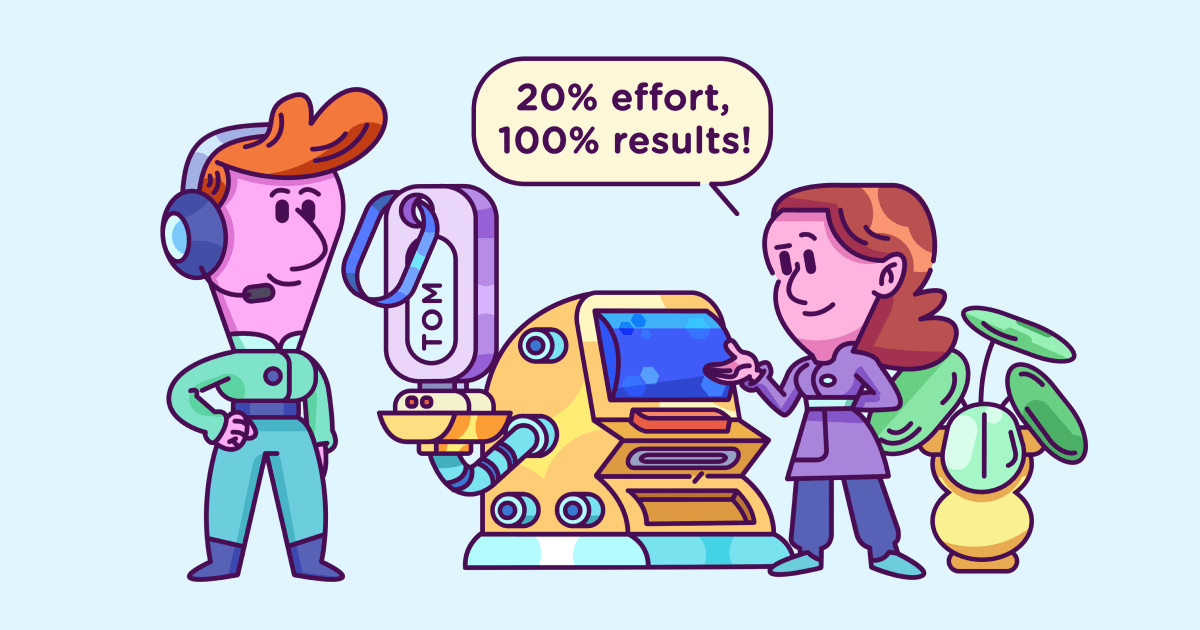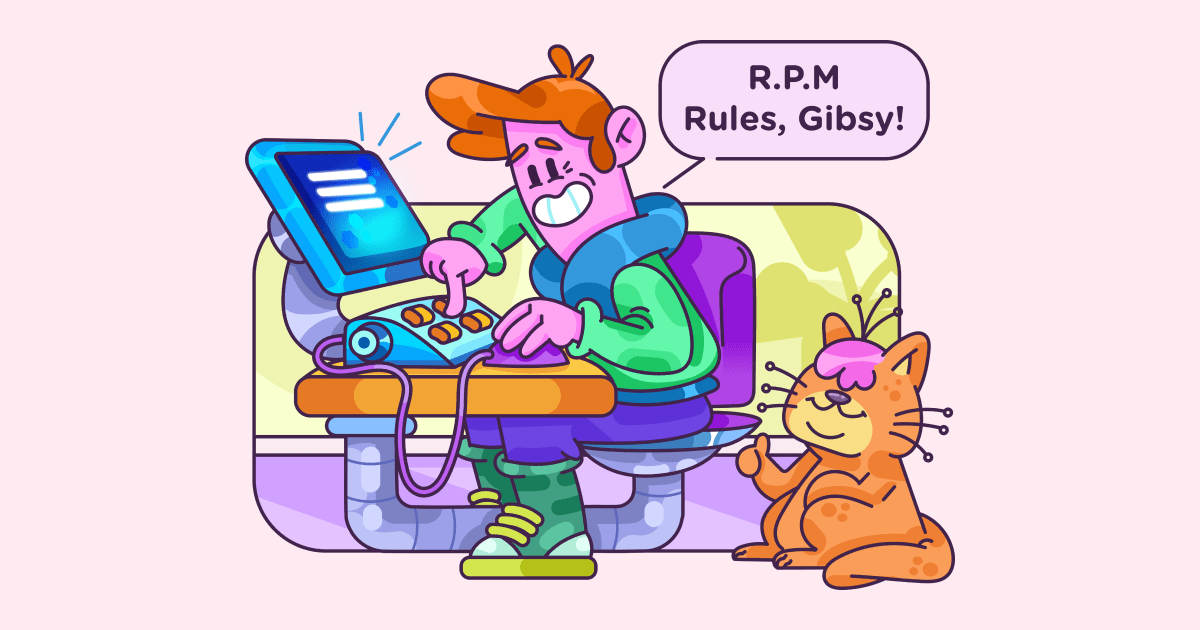12 End-of-workday rituals and why you need them
Last updated on: March 1, 2023
Overtime isn’t the only pressing issue in the modern workplace. Many of us have occasionally made the mistake of thinking about work after we’re long finished with it. Some even do it regularly. Whether it’s because they feel there isn’t enough time in the day, they’re wracked with guilt, or feel like they just process better outside of work.
Sadly, not being able to detach from your workday causes significant consequences to our careers and personal lives. From fatigue and memory issues, to burnout. So today, we’re giving you a guide on how to unplug from your workday by employing one or more activities.
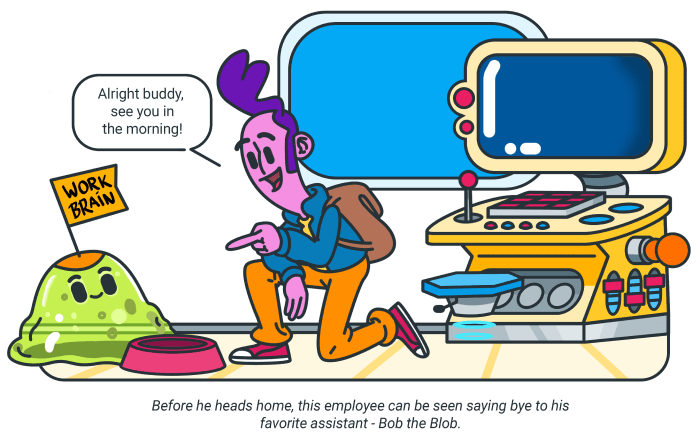
Table of Contents
What happens when you don’t unplug from work
Unplugging is the act of creating a clear divide between your work day, and your leisure time – the one spent on personal life, family, physical and emotional health, and hobbies.
An interesting study published in the International Journal of Environmental Research and Public Health in 2018, discussed how mental and emotional recovery in off-work hours is crucial for maintaining consistent energy levels. The researchers observed health workers, and noticed how those who couldn’t stop thinking about work-related things reported feeling more fatigued, stressed and lacked sleep.
Without activities that acted as a buffer between work time and personal time, people remained in “work mode”, and were unable to recover from the stresses of the day. Thus, they would start the following day significantly more exhausted and mentally unprepared.
Other studies have also found that lack of detachment leads to:
- Exhaustion and burnout;
- Worsened memory, perception and deduction;
- Lack of self-control and mood swings.
For remote workers, setting proper recovery conditions is even more complicated. Their homes are their workspaces, wedged between the kitchen and the living room. It’s hard not to see unplugging as impossible when there is no physical boundary between home and the office.
The benefits of having an end of workday ritual
The first obvious benefits are avoiding burnout, and getting better sleep. We need to start thinking about our cognitive and emotional reserves: how they get depleted during work, and the need to refill them in our leisure time. Otherwise, the next day, we’re running on an empty tank.
But to fully recover, we first need to know how to leave our jobs behind.
Deborah Bright of Bright Enterprises coaches about end of workday rituals. In an article for Harvard Business Review, she noted how a test group of 26 managers had an increase in the ability to unplug from work from 40% to 68%, after trying out a few techniques. In the following section, we’ve included some tips on how to approach detaching from work, and specific ideas for activities.
How to start unplugging from work
Before putting any rituals into place, let’s first take a look at how you can choose the activity most suitable for you and your personality.
This can save you time, energy, and choosing through trial and error.
Set a time and respect it
Determine how long your wind-down ritual will last. Of course, it all depends on what the average work hours are in your country, and at what time you finish on most days.
For some, 5-15 minutes is enough. Others might need half an hour to an hour.
When you schedule a ritual (or a few), make sure there’s enough time to properly cool down from work. Even if you finish the activities sooner than expected, don’t shorten the time and move on. Respect your free time as much as the work time.
Make a list of your favorite wind-down activities
The Internet is your best friend for this part.
Consider your favorite types of activities: outdoor ones, reading, writing, planning, listening, reflecting, watching something, talking…
What helps you relax the most? Keep in mind that the goal isn’t to necessarily zone out after work. It’s to find the best ritual to send off your workday properly. Consider which activities keep your brain active and involved, and apply it to your work.
It can be as simple as wiping down your workspace and taking a stroll to the kitchen to wash your cup. Or writing down a to-do list for tomorrow while planning out the next step in the project. Or closing all the browser tabs, bookmarking the important ones, then cleaning out your inbox. Use the activity to signal your brain that work time is OVER.
Always consider how the day went
If you’re not the type of person who can easily unwind right as they finish work, then don’t force yourself. In fact, you will sometimes have to swap out your rituals depending on the day.
- Maybe you have a big presentation tomorrow, and you’re feeling nervous about it;
- An argument with a coworker or supervisor has you worried about the following days;
- There was a big issue on a project, and everyone worked tirelessly to solve it, so now you’re just drained of energy and will to do anything;
- You had an unproductive day, and feel like you could’ve done more.
Imagine that each of these situations is followed by the same end-of-work ritual, like talking to your family, for example. Depending on what happened throughout the day, the same event will have different turnouts.
Either you won’t be fully invested in the conversation, you’ll start talking about the problems at work, or you’ll decide to skip talking to anyone altogether. Instead, you could:
- Talk to a coworker casually about your insecurities and doubts about the presentation, ask for opinion;
- A walk home, or around the block could help clear out your head, and maybe a conversation with family or a friend, to get some perspective;
- Listening to music that relaxes you during commute/picking up favorite takeout on the way home/summarizing the day with the team;
- Making a catch-up list for tomorrow, and planning out how to compensate for time lost.
All in all, it’s good to have several wind-down methods to choose from depending on your day. It all plays into the larger role of balancing your work and life.
End of workday ritual ideas
Here is a list of possible activities that can help you successfully detach from “work mode”. Both mentally and physically.
Write reminders and lists to your “future self”
Easy as that.
Make a list of things that need to be done the next day, and place it on the desk, or scattered on post-its. Whatever catches your eye first. This activity is great because it lets you scrounge through your brain for those last bits of information, effectively “cleaning it out” for the rest of the day.
What’s more, a pre-prepped plan for tomorrow can only kickstart your productivity when you come back to work. Think of it as taking care of your “future self”.
Bonus activity:
Set your planned work hours in a time tracker one day in advance. It’s a slightly more detailed preparation, but saves you a lot of time the next day.
Engage in positive conversations
When you get home, do your best to avoid cliche questions like “How was everyone’s day?” or “How was school?” or “Did anything fun today?”
Focus on asking less generalized questions, and something more contained, like: “Have you seen that new TV show?” Or “What’s the weirdest thing you’ve heard today?”
As we often see on mainstream media (and experience ourselves at some point), dinner conversations can get awkward at best, and depressing at worst. So, to help yourself and your housemates shift into “personal time” mode, make interesting, positive inquiries to stir up an engaging conversation. It helps shift focus from work stresses and the day, and helps your mind slowly ease into the rest of the day. After a few days, you’ll see it transform into a healthy and fun habit everyone will look forward to.
Strapped for ideas? There are plenty of websites with hundreds of questions to kick off this new daily habit.
Find a relaxing video game to play
One of my personally favorite things to do is, after shutting off my laptop, I walk the dogs to physically exit my home “work office”, and as I get back – start up a low-effort video game. For the next few weeks, it’s going to be Cozy Grove, a farming/camping simulator with meditative music, fishing, foraging, and building a campsite.
For some of my close friends, more violent, stress-relieving games, like DOOM or Counter Strike (both shooters), are preferred choices.
Video games can be another good buffer between work and personal time. Because they engage your brain through playful decision making, and visual and aural stimuli, it’s difficult to be immersed in a game and think about work at the same time.
And luckily for us, choices are endless: you can download a small app, and play a round or two on the way home, play a multiplayer game with housemates or family, or just spend half an hour in a digital space that detaches you from the working mind. Half an hour to an hour is often more than enough.
Merge walks and chores
One of my favorite things to do to signal the end of a workday, is to finish up a chore or two on my way home. Usually, it’s groceries or other kinds of shopping.
It comes like a nice transition into free time, and I feel like I used my free time productively for something more “tangible”. And when I get home, I have a nice little conversation starter with my partner.
Similarly, you can walk the dog, take out the trash, ask a friend or family member you haven’t seen in a while for a stroll, or something else.
Write a journal entry
It doesn’t have to be a personal journal, but a professional one. Take a few minutes to put your thoughts on paper while the day is still fresh in your head. And if there’s nothing of note to write about, try describing the general atmosphere at work, how you felt, and if there were any sensations or situations that affected you – positively or negatively.
Gathering this information is useful for several reasons:
- You empty your mind, and are able to sort your thoughts;
- It is a record to look back on at a later point, for self-evaluation and growth;
- It’s an excellent way to recognize patterns of behavior, whether with you or others (potential red flags of a toxic workplace, coworkers, or boss);
- It encourages you to self-reflect frequently, learn from your mistakes, and track your career advancement.
💡When it comes to self-reflecting, you can check out our article on improving the quality of life in a modern workspace.How can we improve the quality of life in today’s notorious 24/7 work culture?
Clean up your workspace
This one, you’ll always see in any article that discusses end of workday rituals.
And for a good reason – it works.
While cleaning out your desk as you finish up your brain is allowed to mull over events from that day. It can recoup, analyze, and remind you of anything you might have pushed aside. Additionally, it’s a great way to greet your “future self” who will take a seat at a clean desk the next day.
Leave a small task last
Your end of workday routine can also be wrapping up smaller tasks that aren’t as urgent:
- Emailing, clearing out your inbox, sorting your mail;
- Checking in with a coworker about a task or a project that is due soon;
- Making a plan for the next day, along with a to-do list, etc.
If checking off quick and easy tasks is a more fulfilling conclusion to your workday, then go for it! Swap out any menial tasks of the day for bigger ones, and leave those as a “cooldown” before heading out home.
Listen to a podcast
Find a podcast that you will schedule every day at a set time, when you finish work. It can be whatever you like to listen to: life and career coaches, true crime, entertainment, interviews…
Start doing this ritual daily, as soon as you log off. Train your brain that, whenever the podcast comes on, it can relax, and switch focus to something more casual. Naturally, the podcast needs to be engaging, so you don’t wander off thinking about the approaching deadline.
Make an end-of-work playlist
While I never had an actual playlist, I did have a mental library of songs I loved. And usually, by the time I’m done with work, I know the kind of music I’m in the mood to listen to.
I would leave the office, earphones in ears, and YouTube at the ready. My walks home got noticeably lighter, as my brain wandered trying to recreate the music video to the song currently playing. Or, I would be reminded of certain situations, or people, movies or TV shows, which would then pull threads to other trains of thoughts.
And in that scramble, the next thing I know, I’m at my doorstep, feeling fully refreshed. Whether you choose to walk to your favorite songs, work out, or dance, music is without a doubt a great stimulus that wears out your brain.
Say goodbye to everyone in the office
The Japanese office culture has this neat little tradition I personally love. When a person is finished with their work for the day, they say farewell to the rest of the coworkers with the phrase:
お先に失礼します
/Osaki ni Shitsureishimasu/
Which translates to:
“Excuse me for leaving work before you!”
The phrase is a lingering etiquette from a time when employees couldn’t leave before their superiors. One says it as they leave the office, to show they recognize being lucky for not having to work overtime, and that they appreciate how hard the others have to work. Some other phrases also include thanking the team for a completed task, for their hard work, etc. Japanese workspace vocabulary is designed to nurture good relations, thankfulness, and transparency between coworkers.
But just because we live outside Japan, doesn’t mean we can’t employ similar practices. As you finish your day, check in with some coworkers you worked that day. Thank them for the help, or for a chat that day, put in a good word for something they or their team did. Ultimately, as you leave the office, make sure to say one loud and clear “good night”, “good luck”, or “goodbye” to the rest of the office.
At times when you absolutely need to work longer hours, you can implement techniques that will ensure you are still able to detach when it’s time to go home.
Turn off your phone/put it on silent
The easiest ritual is simultaneously the most frightening.
A lot of people are afraid that shutting off their phone means they’ll miss a crucial email, phone call, or message. And that this mistake will cost them their job.
But it rarely ever does, does it?
Unless you’re a doctor on call, a frontline worker, or a research scientist and the like, odds are that you missing a call won’t get anyone killed, or make the world explode. So, start with that mindset. Work is important, but your mental health takes priority.
At the end of the day, check your messages one last time, make sure you sent all the emails needed, made all the phone calls, then set all work-related notifications to snooze until the next morning.
It will be difficult at first, and you will fail. More than you will succeed. But the longer you keep at it, the easier it will get.
Use commute as a mental transition
Most of us go through some form of commute between work and home. And we already have playlists, podcasts, or books to entertain us in that period. However, when you work remote, this transition time is missing. Along with numerous other work from home challenges, it all becomes a big blur, and our jobs start to mesh with our personal life.
There’s a running joke online about turning off your work computer and just moving onto your couch and turning on the TV. Sadly, it has become a reality for many of us. While we think it’s no big deal, not having a clear “buffer” between work and free time blurs the lines, and we take longer to shift from work mode. Without a proper transition, you will be 40 minutes into a TV program before you realize you’ve just zoned out.
A close friend of mine mentions how he has to take a 40-minute walk every day to emulate his commute. Otherwise, he brings the stress home. Similarly, you can take your bike.
To sum up
Detaching from work is an essential part of your workday. Our brains need a clear distinction that our job is done to be able to switch into rest mode. Not allowing it to properly recover leaves you open to problems like poor sleep, exhaustion, and memory issues. When you implement a simple activity or two at the end of every day, you actively help your future self prepare for the day ahead.

